#Mythos Reviews
Text
Rick Riordan’s ‘Percy Jackson and the Olympians’ is perhaps the most well known modern book series inspired by Greek myth. Originally comprising of six books and starting with ‘Percy Jackson and the Lightning Thief’, the series has sold over 180 million copies worldwide and been translated into thirty-seven languages. It has inspired a Broadway musical, two films, and now, finally, a Disney Plus TV series. Drawing heavily from the books, but also from aspects of Greek myth unexplored in the original series, the Disney show brings to life a wonderful world of myth and magic, of humans and gods.
In the first episode we are introduced to the titular character, Percy Jackson, played by Walker Scobell, who is, in own words, ‘a troubled kid’.
Keep Reading
#Mythos#Mythos Reviews#Mythos Articles#Percy Jackson#Percy Jackson and the Olympians#TV reviews#Rick Riordan#Greek Myth#Greek Mythology#Myths nd Legends#Greek Gods#Half-Bloods#Greek Heroes#Minotaur#Fury#Camp Half Blood#Xenia#Kleos#Myths and Legends#Grover#Satyrs
5 notes
·
View notes
Text
Okay y'all, I need your input!
I want to take my lifelong Cthulhu Mythos special interest to the next level. I want to expand my own horizons and introduce people to what I find. So, I want to start reviewing Cthulhu Mythos stuff. Mostly books, since that's my wheelhouse but also anything else I can get my hands on, especially more obscure stuff. I've got a lot of ideas, including stuff for my Kofi, a cartoon persona, maybe even YouTube or podcast stuff later on?
I'm gonna do this for a year to see how it goes. Give it a good solid try because the time is gonna pass anyway and I'd rather be full of knowledge than regrets. But first... I gotta decide where to put it.
Please, if you're interested, reblog this! I want to have some idea of what I'm getting into with a theoretical audience 😅.
#cthulhu mythos#lovecraft mythos#cthulhu#lovecraftian horror#lovecraftian#hp lovecraft#book review#cosmic horror
49 notes
·
View notes
Text
You know what
Happy birthday, Wilbur Whatley 
He turned 111 :)
#wilbur whateley#cthulhu mythos#the dunwich horror#stories#bookblr#hp lovecraft#books & libraries#book review
14 notes
·
View notes
Text
thinking about the idiot at pitchfork that gave unreal unearth only a 5/10 and then proceeded to write the worst music review/explanation/critique thing i have ever seen in my entire life
and ive been a reader for years, i have read many reviews of differing quality
and that was SO bad
#unreal unearth unheard#unreal unearth#THE WASTELAND BABY ONE IS SOOOOO BAD TOO#hozier#andrew hozier byrne#wasteland baby!#the worst part imo was bro yapping about icarion carrian and said hozier got his metaphors and greek mythos mixed#with icarus (duh) and atlas with the holding up the world but last my ass checked atlas held the SKY up#i love greek mythos and i have read many different tales but i cant recall mf holding the whole ass world up#reviewer tried to pull an um actually🤓☝️ and failed MISERABLY#Also they said the held frozen like an angel like basically made no sense and i was dumbfounded#pitchfork is run by idiots actually#AND THE REVIEWERS WONT LET TAKE ME TO CHURCH GO??? THEY GO HE TRIED TO RECREATE IT AND FAILED#NO SHIT HES NOT TRYING TO RECREATE TMTC HES GOT THAT POINT ACROSS HES GOT OTHER SHIT TO WRITE#i love tmtc SO much but the reviewers need to let it go
14 notes
·
View notes
Text
ARIADNE (JENNIFER SAINT) REVIEW
RATING: 5/10
FIND HERE
LIVE-BLOG
NOTE: i found live blogging this book very fun actually! i also wanted to thank you all so much for not spoiling the ending despite the many rants, i’m glad i got to experience that for myself. i did skip some chunks of the phaedra/hippolytus part due to personal triggers so you won’t find much about that in this review. @a-chaotic-dumbass here it is<3
TL;DR: i definitely did like jennifer saint’s actual writing style, though there were some issues with the actual pacing of the story. despite there not being any major inaccuracies, the small things did add up and did annoy me. my biggest issue with this book however are the characters.
SPOILERS UNDERCUT
WRITING (7/10)
I genuinely loved Saint’s style! She is definitely a great writer. There was a perfect balance between simplicity and imagery; some nice quotes but no purple prose and most importantly no dramatic descriptions of feet, which i really enjoyed. I usually don’t enjoy multi-pov that much and it was a bit random getting Phaedra’s POV at times but Saint definitely knows how to give each of her characters a distinct voice, so I actually enjoyed it! I also very much like that she gave Phaedra what seemed to be PPD—it’s always great to get some good representation of such things. Despite what I say about the characters later on, they do all seem to experience some form of character arc which is always a good sign.
The pacing threw me off a little, partially because she tried to fit such a large and versatile myth into one book and partially because of the large chunks of exposition. I honestly skimmed over Theseus’ narration of his previous adventures… I understand that the story has to make sense to non-myth fans, but with her great writing I would have hoped she could’ve found a more elegant way to weave that in. Like I said, the cramming of such a huge myth into a single book resulted in her having to go extremely off-topic to finish story lines. It would’ve been better if done implicitly (e.g. the Icarus myth). Similarly, for about a hundred pages in the book, nothing happened. Different amounts of time passed in each POV chapter which was very confusing, but at the same time there isn’t much you can do about that. I was however disappointed when I got five years of Phaedra’s POV and then a single (bad) exposition chapter from Ariadne in a book that is literally named after her. Honestly, Part 3 was more Phaedra’s book than it was Ariadne’s.
I also wasn’t a huge fan of the 1st person but that’s just a personal nitpick. There were some off lines or some incongruities, but they weren’t too bad overall.
ACCURACY (5/10)
Story-wise, there no big inaccuracies other than the ending, which I absolutely hated, it was just so stupid and unnecessary. In fact, I’m not going to speak about it at all. The way she added the Phaedra and Theseus storyline (though not entirely accurate) was smart and helped story progression, so I’ll consider that a bonus point. The fact that they waited for Phaedra to turn 18 to marry is obviously for modern readers but I can appreciate that nonetheless. I definitely did enjoy the little sprinkles of myths here and there, especially the sentences that are literally just implications (e.g. a King holding up the sky for his people). Looking for those made reading really fun. The fact that she drew parallels made everything so much better. I can also appreciate the fact that she got the timeline correct, only referencing women that came before Ariadne and not after. She does however mention Theseus’ trip to the underworld, conveniently ignoring the fact that this happened long after the Minotaur fiasco (and that Theseus’ ass literally got ripped off). It just serves to make Theseus look bad, but more on that later.
The fact that Phaedra spent most of the book in Athens makes things tricky considering how misogynistic the polish is and none of the power she had there made sense. Reasonably, she wouldn’t be allowed to sit in a single council, let alone share her thoughts and much less conduct entire festivals with women from surrounding cities. Saint tries to point out how unlikely this is and considering it’s a feminist book, things like this are hard to leave out, so there isn’t much she can do. I just don’t like feminist retellings and I still think they don’t work.
I found it a little silly for the characters (who know nothing other than the greek mythology world) to be describing the myths to other characters, as well as Pasiphae translating Asterion’s name to Ariadne. Considering (ancient) Greek is her mother’s tongue, she would’ve probably known the word for star—it would’ve worked so much better if she’d drawn that connection for herself in her personal monologue. Similarly, she mentions a “foetus” at some point, which is a Latin word that came long after any of the described events. Simply saying ‘baby’ (the literal translation) would’ve made so much more sense, but alas.
The Medusa myth is obviously important to the story, especially given the ending (sigh). First of all, this was one of those instances with bad exposition. More importantly though, Saint uses Ovid’s iteration of the Medusa story which is a) misleading and b) also comes years after the events. I honestly love Ovid but using his version of the myth in a book that might very well be read by people that don’t know the original sets the wrong impression. On top of that, the original isn’t feminist at all. It’s anything but. Knowing that as a reader takes away the entire idea Saint was going for. I don’t even know what kind of symbolism Saint was going for by having Ariadne get petrified. All of this just to put Perseus in a bad light, which is unfair considering Perseus is probably the most humble hero there ever was.
This brings me to … Hera. I’m not even going to say much about because a) I don’t have the energy and b) this happens to her in every adaption so I’m not even surprised. You can find different antagonists for your feminist retellings than women, especially divine women, ESPECIALLY women who are victims in their own stories. Phaedra calls Artemis ‘cold and bloodless’ because she’s sworn an oath of chasitity, which … I get that you’re getting rejected but smells like aphobia to me? That just didn’t sit right with me. Life is not meaningless because you don’t love. Additionally, Phaedra goes on about how Artemis might have killed Ariadne for not remaining a virgin. There are a couple of things that annoy me about this such as a) if Artemis has this role in this world, why would Theseus suggest that Artemis killed her?? and b) Artemis was considered responsible for all unanswered female deaths! She doesn’t go around punishing girls that have extramarital sex! It’s simply not that big of a deal.
CHARACTERS (2/10)
Ariadne wasn’t too spectacular or memorable as a main character, but she didn’t really annoy me either. There were some moments where the plot or suspense of the story relied on her being completely stupid which had me screaming at the page. Most of this gets resolved through character developments and was actually set pretty well using foreshadowing e.g. the conversation with Theseus. The foreshadowing is there while also keeping Ariadne’s perspective in mind. Regarding the dancing… I made a huge fuss about it when live-blogging (i still find it funny don’t mind me) but now I actually like it? I was having a brain fart moment at the time and completely forgot her connection to Dionysos. It was really clever to introduce that from the beginning and I honestly wish that she had carried that on. I also wish her necklace would’ve gotten some more mentions, but it just got forgotten. It’s especially important considering Ariadne considered committing suicide with it.
I didn’t like the fact that Ariadne had no revolutionary thoughts whatsoever until Theseus shows up and then as soon as this hot hunk shows up, she’s all for killing her brother. The same brother she didn’t want to get locked up. Although there was some decent character development I did find her last choice to reason with Perseus a bit sudden. All of that just happened very fast.
Minos being a cruel and merciless ass doesn’t sit right with me anyway and the fact that Saint takes away his motivation to be that way (aka. his love and grief over his son) just makes it so much worse, I already said this in an ask, but she just shot herself in the foot with that. It would’ve made for such a great antagonist personality/motivation instead we have All Men Are Bad. She could’ve even made a point of him caring more for his dead son than his alive daughters!
As the number one Theseus hater, I would usually be the last person to defend him, but for some reason this portrayal felt really inauthentic. Personally, I don’t think Theseus was being malicious when leaving Ariadne behind, it’s just a thing he had to do. He’s not an evil mastermind, he’s just some shitty guy. This is all minor because I’m just suggesting a different type of evil, but I don’t know.
As for Dionysos… I honestly don’t know how I feel about him. Ariadne is way too subjective and unreliable for me to be able to make a proper assumption about him so I just won’t.
The only characters I really did enjoy from start to finish were Daedalus, Pasiphae and Deucalion, all of which barely got any screen time. In fact, my only complaint regarding Pasiphae is that I wished she had more screen time. I loved every moment I got to read about her.
#greek mythology#greek myth#ariadne#theseus#ariadne and dionysus#theseus and the minotaur#minotaur#dionysos#dionysus#mythology#greek gods#mythos#greek mythos#hera#artemis#daedalus#review#book review#jennifer saint#adaptation#book rating#greek myth adaptation#adaptations#perseus#medusa#phaedra#hippolytus
30 notes
·
View notes
Text
Crash Landing on You Part 2 Unintended Myth: Skeleton Woman
We continue out Part 2 Deep Dive into Crash Landing on You and the Unintended Myth: Skeleton Woman with @allgirlsareprincesses
Youtube:
youtube
itunes:
Spotify:
Part 1 is available:
#youtube#podcast#mythology#kdrama#netflix kdrama#korean drama#asian drama review#mythos#myth#mythic#meta analysis#Spotify
9 notes
·
View notes
Text
Princess Tutu...
So I watched all of Princess Tutu...
I cried at the end.
It was soooo good, I would definitely recommend this anime. I would even rewatch it multiple times.
10/10

#anime and manga#shoujo#magical girl#princess tutu#princess kraehe#ahiru#ahiru arima#fakir#mytho#rue kuroha#i love this so much#crying this show is sooooo good#this show is incredible#manga#anime#Moon Bunny Reviews
35 notes
·
View notes
Text
2023 Tumblr Top 10
1. 88 notes - Feb 5 2023

2. 76 notes - Sep 30 2023

3. 49 notes - Oct 8 2023
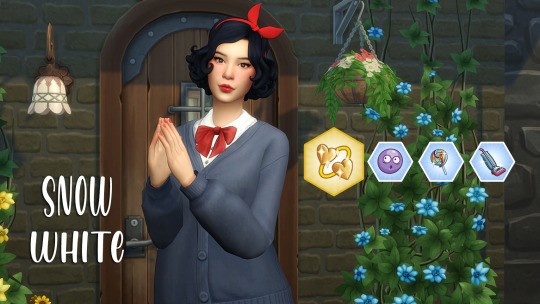
4. 39 notes - Nov 26 2023

5. 34 notes - Mar 1 2023
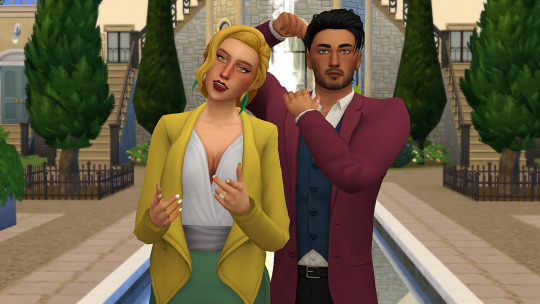
6. 29 notes - Oct 23 2023
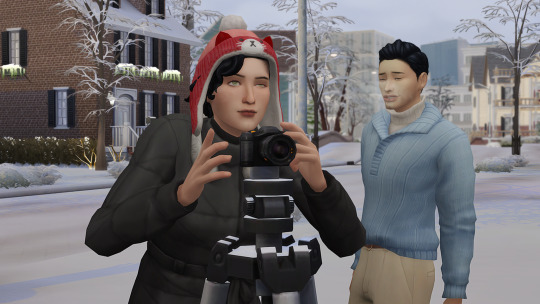
7. 29 notes - Oct 14 2023

8. 29 notes - Mar 6 2023

9. 28 notes - Nov 27 2023

10. 28 notes - Mar 8 2023

Created by TumblrTop10
#tumblrtop10#You guys really like Snow XD#Also I had the MOST fun with Mythos March so its really fun to see those posts again :)#sims 4#ts4#2023 review
5 notes
·
View notes
Text

Reposting an old book review with a cool new book portrait
THOSE DREADFUL ELTDOWN SHARDS by Franklyn Searight and Richard F. Searight
Some of the hallmarks of the fiction of H.P. Lovecraft- the grandfather of modern cosmic horror- are the ancient tomes of forbidden and madness-inducing knowledge that infest his tales like pallid fungi. His most famous fictional text is the “Necronomicon”, but he also mentions other works like the “Pnakotic Fragments” and the “Book of Azathoth”, along with grimoires invented by his fellow Weird pulp writers such as Robert Bloch’s “Book of EIbon”, Robert E. Howard’s “Nameless Cults”. And, of course, the artifacts that this anthology focuses on: the “Eltdown Shards” of author Richard Searight.
Searight himself only wrote two stories featuring the Shards. The majority of tales in this anthology are actually posthumous “collaborations” with his son, Franklyn Searight. Rounding out the book are Lovecraft’s tales which mention the Shards, including the novella “The Shadow Out of Time”, and more obscure works such as “The Diary of Alonzo Typer”.
The Shards, a collection of clay tablets inscribed with bizarre hieroglyphics written in an unknown, prehuman language, are housed in the museum of Beloin College, a small university near Weston, Wisconsin. Though they seem innocuous, the Shards hide great power that has ensorcelled the minds of many beings throughout the eons.
An overwhelming desire for omniscience- full comprehension of all knowledge in the universe- is a major theme in stories surrounding the Eltdown Shards. Protagonists obsess over the tablets, using the incantations contained in the forgotten hieroglyphics to summon beings such as The Warder of Knowledge, the ice demon Avaloth, and the ape-god Ouran-Atun. As you can imagine, these encounters usually do not end well for the mortal summoners.
Mind transference is another theme in many of the Shards stories. There is a strong connection with the Yithians of Lovecraft’s “Shadow Out of Time”, who came to Earth in the distant past by transferring their minds across the universe into the bodies of the strange, cone-like beings of the Triassic.
Mental voyaging also crops up in “The Challenge From Beyond”, a round robin story co-written by Lovecraft, Searight, and their Pulp-era peers A. Merrit, C.L. Moore, Robert E. Howard and Frank Belknap Long. In this tale a man discovers a strange crystalline cube that turns out to be a mind-teleporting device sent by a race of centipede-people from the distant planet of Yekaub who may or may not be related to the original bodies of the Yithians.
Several of the stories written by Franklyn Searight feature his character Alan Hasrad, a journalist and descendant of Lovecraft’s Mad Arab, Abdul Alhazred. Hasrad’s stories tend to be frustratingly anticlimactic. He investigates some strange thing related to the Shards, obtains information he needs and… well, that’s it. The story “Seized by the Warder” does have an odd twist ending, at least, though it doesn’t add much to the rest of the story.
While Those Dreadful Eltdown Shards don’t add much to the Lovecraft mythos beyond giving some background to a text briefly mentioned in “The Shadow Out of Time”, it is interesting to see the Searights’ own world taking form. There is potential here for an intriguing mythology, it just needs wider expansion and deeper delving.
5 notes
·
View notes
Text

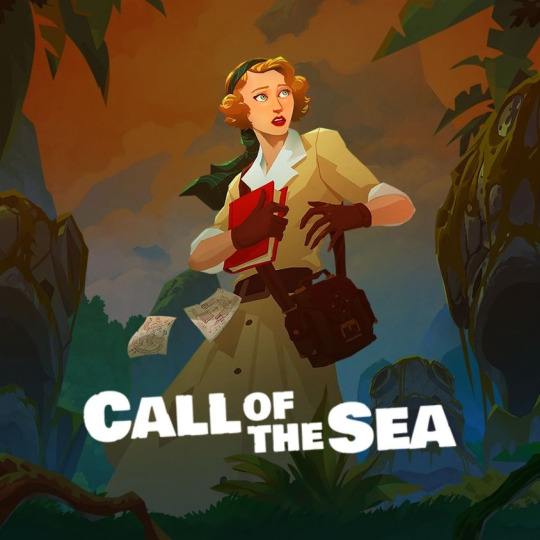
Love is a powerful feeling, a compelling force that drives all humans to overcome their own limitations and archive amazing things. There is only one emotion as powerful as love: fear. One could argue that H.P. Lovecraft is one of the most emblematic horror writers in literature and a lot of its mythos shaped modern fiction; yet it owes its endurance to other contemporary writers that called themselves as the “Lovecraft Circle” that carried the original motif, expanded the cosmology and the depth of the pantheon, and also sparked the success that would come many years after the author’s death.
Call of the Sea wears the inspiration front and center with the name and the opening sequence, down to the time period. It is 1930 and our protagonist, Norah Everhart suffers from a mysterious illness that manifests in the form of deteriorating physical disposition, strange marks on her hands, and unsettling dreams of the sea and an island. Her husband Harry organizes an expedition to Tahiti once he has a lead to a possible cure or at least something that seemed promising. However, contact ceased and Norah eventually receives a mysterious parcel through the mail. Worried for her “old pal”, she decides to take action and go after him despite the warnings about the island Harry disappeared into.

The warm beach and soothing visuals welcome Norah and the player in an introspective adventure. The expedition crew is nowhere to be seen and all that she has to go are the traces of their camp sites and travelling logs, Norah must follow in their footsteps deeper inside the island and figure out what happened to them and unveil a rather unsettling narrative. The juxtaposition between the crew logs and the love story between Norah and Harry are a carefully woven contrast, and while the game itself isn’t a horror title it is clear that the inspiration of the story is played straight and could have been more impactful if the game hasn’t been so eager to show off its inspiration within the first few minutes and chose to reveal it closer to the end of the story. A little more mystery and restraint could have given it a little more gravitas and a sense of mystery, rewarding attentive players for paying attention and putting the pieces of the puzzle together.

Speaking of puzzle, this title is along the lines of an “escape the room” title, with the immediate objective always making sense in the context: find a way to inside the island, turn on the power generator of the site, so on and so forth, with the hardest challenges reserved for the outlandish sites that are more intrinsically tied to the mystery. The organ puzzle in the middle of the game is a rather unforgiving obtuse even with Norah’s journal assisting in figuring it out. There are plenty of notes and logs scattered across the locales and sometimes it is possible that Norah will miss a point of interest and won’t take note, the game also might fail to proper signal what it expect from the player and lead to walking around examining things until finally triggering the comment that leads to the next objective. The island itself divided in many areas that consists in 6 different chapters, each with its self-contained group of puzzles and purpose and once going forward there is no need to backtrack which is a very good narrative decision.

While Norah is by herself, the island itself could be considered another character. Lush visuals, beautiful nature surrounding her and detailed environment. Once reaching signs of the expedition and other locales there is always something to see, with all the equipment and personal items scattered around that often leads to a few musings from our protagonist. In contrast, the unnatural locations are imposing and the sense of scale gives weight to one’s insignificance. The soundscape is usually quiet and ambient, with the music making itself known once some key moments to enhance its emotional impact.
Call of the Sea is an intriguing brain-teaser and a beautiful experience, a product of love by people who enjoy telling stories and poured care in every set piece. A story of love and loss, about finding a place to belong to and sacrifice. Also available for VR, this is a title that most adventure gamers or those who appreciate narrative-driven games should experience.

#game reviews#adventure games#steam games#adventure game reviews#call of the sea#cthulhu mythos#escape the room games#escape the room
8 notes
·
View notes
Text
This week we follow our protagonists to the depths of the underworld and the heights of Olympus as we reach the end of season one! Despite learning that they have missed the deadline, Percy and his friends choose to continue their quest for the Master Bolt, heading down into the underworld to confront the villain Hades and request its return.
Our protagonists are far from the first heroes to travel to the underworld, with such a journey being known as a ‘katabasis’ (meaning descent). The most famous of this number is possibly Orpheus, who travelled to the underworld to retrieve his lost love Euridice, and ultimately failed in his quest. His travels were aided by the god Apollo, who was possibly his father, though other sources give this honour to the Thracian king, Oeagrus. Apollo went on ahead of Orpheus to let Hades know that Orpheus was on his way to petition for the return of his lost bride while Orpheus himself travelled to the underworld through the gate of Taenarus (located in Taenarum in Laconia). This same entrance was used by Heracles as he travelled into the underworld to battle Cerberus, and by the then-human Psyche as part of her efforts to prove herself worthy again of Cupid’s love.
Keep Reading
#Percy Jackson#Percy Jackson and the Olympians#Mythos#Mythology#Myths and legends#greek mythology#mythos articles#mythos reviews#greek heroes#Ares#Underworld#Olympus#Hades#Kronos#Zeus#Poseidon
4 notes
·
View notes
Text
It's probably a cold take, but 'Shadow Over Innsmouth' isn't a very good book. It's filled with textual and subtexual racism, and at least half the book is different guys expositing at the main character at length. Don't get me wrong, some of the lore it adds to the mythos is neat. The setting and the premise of the book are fine to an extent. "Strange fishing town where there's a cult, the people look frog-like as they get older, and theres plenty of mysterious goings on" is perfectly fine and dare i say a good hook. On god tho, the handling of it is so sloppy and at the top of the list of most blatantly "just H.P. Lovecraft being racist" stories.
Mental this is like a famous one of his. It's not good 👎
#shadow over innsmouth#cthulhu mythos#fae book review#i guess lol#i was just listening to a bunch of lovecraft audiobooks by the same guy and decided to see what the hubbub was about this one#nothing against the guy that voiced the book. he did great. its just that the source material is rotten#i just had to bitch about it
6 notes
·
View notes
Text
Ok, I just finished reading The Repairer of Reputations (the first short story of The King in Yellow). You can read the post I made about the first half here, but here are my final thoughts:
The Good:
-The second half was definitely better than the first, and the ending in particular was great. It truly felt scary and intense to watch Hildred slip further into madness and obsession before having it all come crashing down on him.
-I like how the story shows that Hildred is an unreliable narrator. He claims to have a steel safe in his apartment with a gold and diamond crown inside, which he will wear once he takes over the world. His cousin Louis, however, visits him and calls it a brass crown and calls the steel safe a "biscuit box." Clearly Hildred isn't seeing things properly.
The Bad:
-I still think that the exposition dump at the beginning about the book's alternate history could've been greatly shortened, or even done away with entirely. This only part that was remotely relevant was the fact that suicide had been legalized, and that could've been more naturally introduced when Hildred sees one of the new euthanasia chambers for the first time.
-Much of Hildred's narration in general was boring. The story is told from his first-person perspective, yet most of the time the descriptions felt like they were written by a completely neutral disembodied narrator. Hildred's personality only shines through in specific scenes, usually when he's talking with someone else; every where else, he seems to have to personality at all. The scenes where he's just walking through New York are particularly egregious for this. They're boring and add nothing to the story. One specific example is when he's watching US military ships sail into the harbour. This is a man who's ultimate goal is to take over the world, yet when he sees the military ships he just describes them like an encyclopedia entry. You'd think he'd have thoughts about, I don't know, one day controlling those ships and using them to consolidate his power? But no, he only has a personality about 50% of the time.
#the king in yellow#robert chambers#cthulhu mythos#lovecraftian#lovecraftian horror#weird fiction#cosmic horror#repairer of reputations#first time read#review#carcosa
1 note
·
View note
Text

REVIEW
SPIDER AND FROST by Jennifer Estep at The Reading Cafe:
'a quick read, fast paced short story: captivating and engaging'
http://www.thereadingcafe.com/spider-and-frost-elemental-assassin-by-jennifer-estep-dual-review/
2 notes
·
View notes
Text

Designs for Wilbur and Helen for web comic. I’m thinking of doing Wilbur from the Dunwich horror and Helen from the Greek god pan.
#cthulhu mythos#the dunwich horror#wilbur whateley#art#hp lovecraft#stories#books & libraries#book review#webdesign#web cartoon#webcomic#bee & puppycat
4 notes
·
View notes
Photo


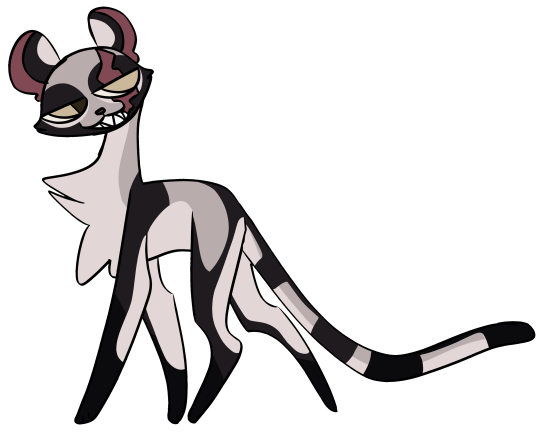


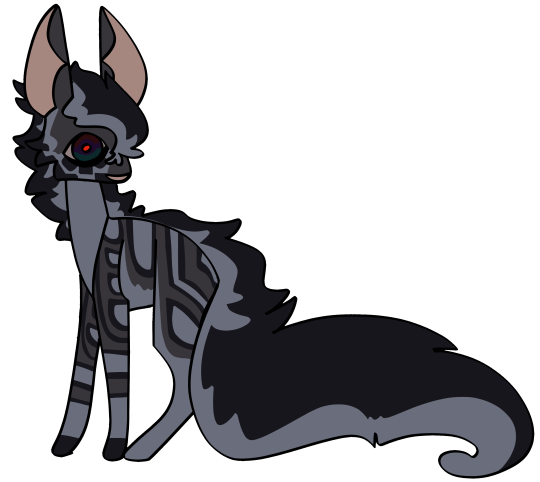

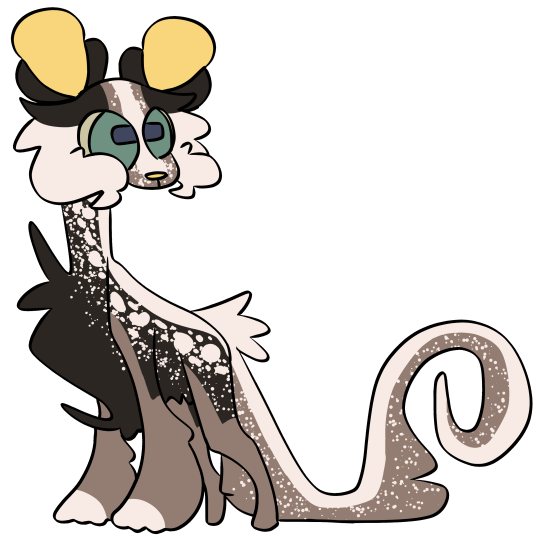


first batch of characters drawn based off of names given to me. here r the names in order from first to last;
blazepeak, blazewing, dancingflight, duskpanther, goldenshadow & lunarfall (you can probably tell which is which lmao), gravesong, icequake, newtspeckle, owlstare, and rotheart
of these my personal favorites are newtspeckle, goldenshadow & lunarfall, and owlstare
#wc#wc oc#warrior cats#warrior cats oc#oc#my oc#my art#my drawing#fun facts#uhh#i was listening to ppl review monument mythos while drawing gravesong#rotheart is based off a picture of a hare i saw#newtspeckle i made while watching this guys video essays on icarly#for dancing flight i was listening to cg5 lonely king on repeat#i listened to wendigoons video on paradise lost while drawing goldenshadow#while drawing lunarfall i watched nightminds video abt the peaceful watcher
3 notes
·
View notes